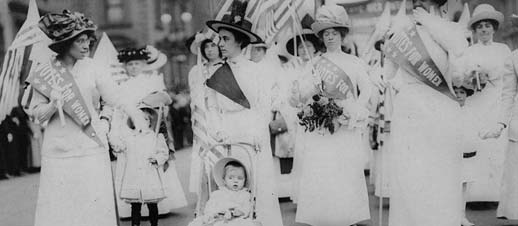
Appel à contributions
Un/disciplined ? Research Methods, Theories and Standpoints of Women’s and Gender History
Avant le 1er décembre - Vienne (Autriche)
Conference for doctoral candidates
Vienna (Austria), February 27th–29th, 2012
Since its initiation in the context of the New Women’s Movements, but particularly during the 1980s and 1990s, Women’s and Gender History has increasingly become established as an integral part of historical research and academic teaching. It was based on the criticism of women’s exclusion from the (historical) sciences and the non-recognition of their contribution to society. Women’s and Gender Historians aimed to reform historical science itself “from the margins” (Kessel/Signori 2000). This goal included searching for appropriate sources as well as research methods and new ways of source analysis. From the beginning, Women’s and Gender History was conceptualized as an interdisciplinary project. With changes to society as its aim, the analysis of gender could not exclusively focus on one field of study. Aspirations of societal change were accompanied by the demand to challenge theories and research methods again and again. Furthermore, this perspective led researchers to pose new questions to both new and well-known sources. Research techniques and theoretical approaches that developed in this context were soon debated on a transnational level. This conference aims to discuss such aspirations and the opportunities to put them into practice.
By offering young scientists at the beginning of their academic careers a forum for scientific exchange, the conference is intended to contribute to a repositioning of (young) academic research in the area of Women’s and Gender History. Furthermore, the transnational comparison of theoretical approaches and research techniques is meant to be stimulated. Seven central questions should especially be discussed at the workshop :
1.) What methods are applicable for research in Women’s and Gender History ?
2.) How and with what research methods are (new) sources analysed ?
3.) What role does interdisciplinarity play in research in Gender History ? To what extent are methods of other disciplines applied and how are they adapted to the demands of Women’s and Gender History ? How do how interdisciplinary approaches alter historical research ?
4.) What links exist between Gender or Queer Studies and Women’s and Gender History ?
5.) How do national historiographic traditions influence research in Women’s and Gender History ? What consequences does this have on our own research ? How can we benefit from research traditions of other countries ? Where do we face obstacles in transferring them to our research contexts ?
6.) How are theoretical concepts of Women’s and Gender History – such as those about gender – integrated into historical research and how does research alter feminist theory ? What instruments are there for correcting presuppositions ?
7.) How do we integrate into our analysis the fact that gender relations intersect other social relations or factors that generate inequality (e.g. race, class, age or religion) ?
By focussing on research approaches rather than specific fields of research, doctoral candidates in all areas of Women’s and Gender History are addressed. Young scientists of neighbouring disciplines whose work is related to Women’s and Gender History are also invited to apply. We aim to achieve an international podium which reflects the variety of European Women’s and Gender History and which can detach the debate from the constrictions of national contexts. The conference will take place at the University of Vienna, the conference languages will be German and English. We hope to be able to (partly) reimburse travel and accommodation costs ; funding has been applied for.
Applicants should send an abstract of 1-2 pages and a short description of their scientific history (CV) until December 1st, 2011 at the latest to info@fernetzt.univie.ac.at.
Fichiers de syndication :
Statistiques :
Le site contient 4383 articles
